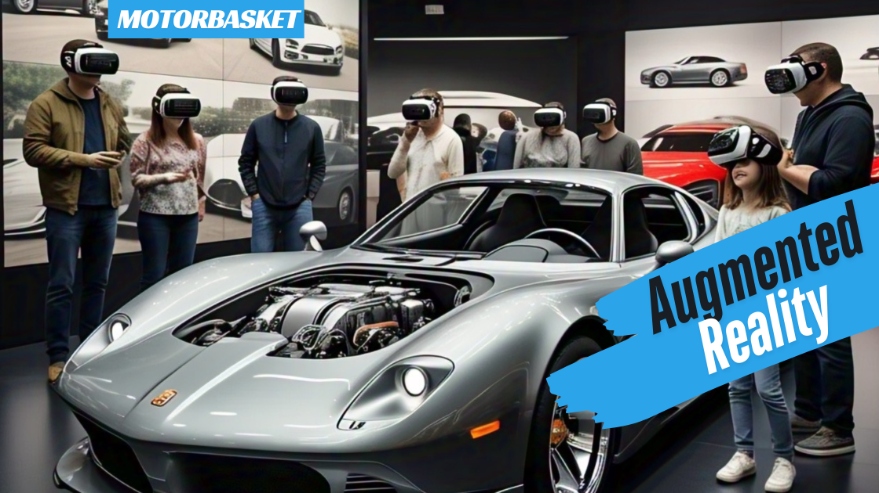10 Exciting Predictions for the Future of Autonomous Vehicles
Autonomous vehicles (AVs) are no longer a sci-fi fantasy—they’re rapidly becoming a reality. From self-driving cars to autonomous trucks, the future of transportation is being reshaped by cutting-edge technology. But what can we really expect from the future of autonomous vehicles? In this article, we’ll explore 10 exciting predictions that will revolutionize the way we travel, work, and live.
Whether you’re a tech enthusiast, a driver, or simply curious about the future of autonomous vehicles, this guide will provide you with a comprehensive look at what’s coming next. Let’s dive in!
Table of Contents
Why the Future of Autonomous Vehicles Matters
Before we delve into the predictions, let’s understand why the future of autonomous vehicles is so important:
- Safety: AVs have the potential to reduce human error, which is responsible for 94% of car accidents.
- Efficiency: Self-driving cars can optimize routes, reduce traffic congestion, and lower fuel consumption.
- Accessibility: AVs can provide mobility solutions for the elderly, disabled, and those who cannot drive.
- Environmental Impact: Autonomous electric vehicles (AEVs) can significantly reduce carbon emissions.
Now, let’s explore the 10 exciting predictions for the future of autonomous vehicles.
1. Widespread Adoption of Self-Driving Cars
By 2030, experts predict that autonomous vehicles will make up a significant portion of vehicles on the road. Companies like Tesla, Waymo, and Uber are already testing self-driving cars, and consumer adoption is expected to grow rapidly.
What to Expect:
- Fully autonomous cars (Level 5) will become mainstream.
- Ride-hailing services will transition to driverless fleets.
2. Autonomous Public Transportation
The future of autonomous vehicles isn’t limited to personal cars. Cities around the world are experimenting with self-driving buses, shuttles, and trains.
What to Expect:
- Autonomous buses will reduce operational costs and improve efficiency.
- Smart cities will integrate AVs into public transit systems.
3. Self-Driving Trucks Revolutionizing Logistics
The trucking industry is poised for a major transformation. Autonomous trucks can operate 24/7, reducing delivery times and costs.
What to Expect:
- Long-haul trucking will become fully autonomous.
- Warehouses and distribution centers will use AVs for last-mile delivery.
4. Enhanced Safety Features
One of the biggest promises of the future of autonomous vehicles is improved safety. AVs are equipped with advanced sensors, cameras, and AI to avoid accidents.
What to Expect:
- Real-time collision avoidance systems.
- Predictive analytics to anticipate and prevent accidents.
5. Autonomous Electric Vehicles (AEVs)
The combination of autonomy and electrification is a game-changer. AEVs will dominate the future of autonomous vehicles, offering eco-friendly and cost-effective transportation.
What to Expect:
- Increased adoption of electric self-driving cars.
- Charging infrastructure integrated with autonomous navigation.
6. Smart Cities and Connected Infrastructure
The future of autonomous vehicles is closely tied to the development of smart cities. Connected infrastructure, such as traffic lights and road sensors, will communicate with AVs to optimize traffic flow.
What to Expect:
- Vehicle-to-everything (V2X) communication for seamless navigation.
- Reduced traffic congestion and improved urban mobility.
7. New Business Models and Services
Autonomous vehicles will create new opportunities for businesses. From mobility-as-a-service (MaaS) to autonomous delivery robots, the possibilities are endless.
What to Expect:
- Subscription-based self-driving car services.
- Autonomous delivery vehicles for groceries, packages, and food.
8. Regulatory and Ethical Challenges
As AVs become more common, governments will need to address regulatory and ethical issues. Who is responsible in case of an accident? How do we ensure data privacy?
What to Expect:
- New laws and regulations for AVs.
- Ethical frameworks for AI decision-making in critical situations.
9. Job Displacement and Workforce Transformation
While AVs will create new jobs, they will also disrupt traditional industries like trucking and taxi services. The workforce will need to adapt to these changes.
What to Expect:
- Reskilling programs for displaced workers.
- New roles in AV maintenance, software development, and data analysis.
10. A Shift in Car Ownership
The future of autonomous vehicles may see a decline in personal car ownership. Instead, people will rely on shared autonomous fleets for their transportation needs.
What to Expect:
- Rise of car-sharing and ride-hailing services.
- Reduced need for parking spaces in urban areas.
Final Thoughts
The future of autonomous vehicles is bright, filled with innovation and opportunities. From safer roads to smarter cities, AVs will transform the way we live and travel. However, challenges like regulation, ethics, and workforce adaptation must be addressed to fully realize their potential.
At Motorbasket, we’re excited to keep you updated on the latest developments in the future of autonomous vehicles. Stay tuned for more insights and trends!
Click on Below Links to Follow Us on Our Social Media Pages
Click on Below Links to Read Our Company Policies




